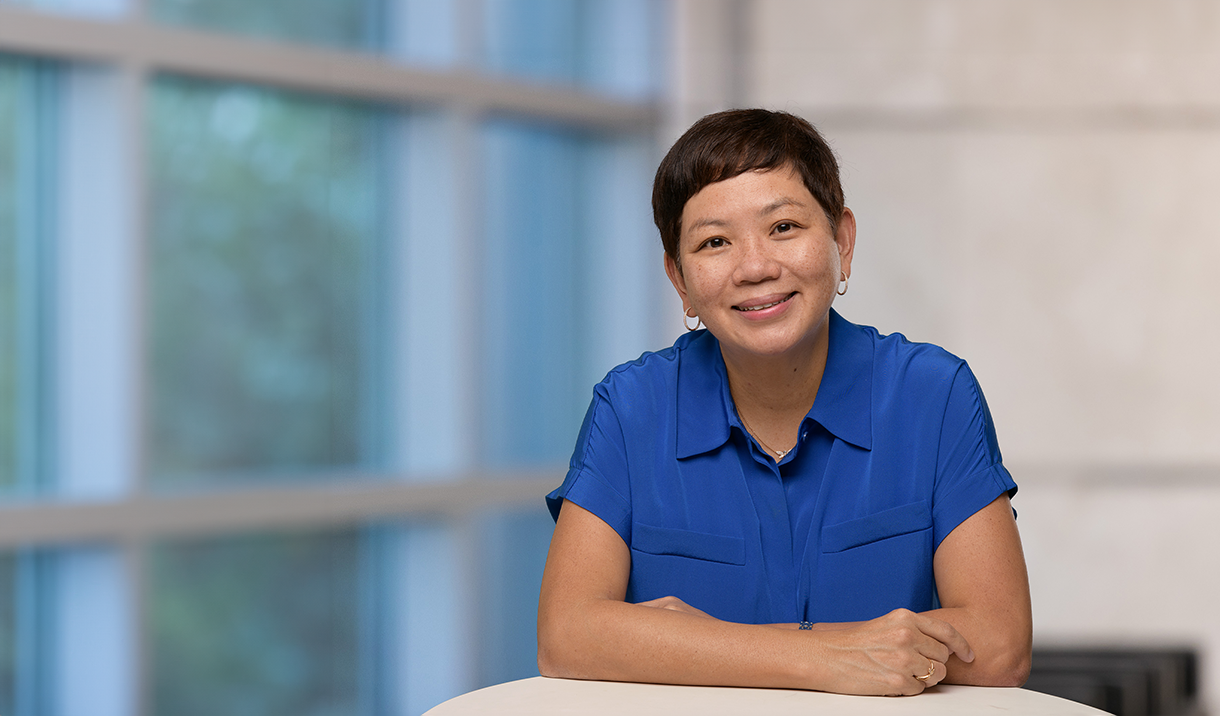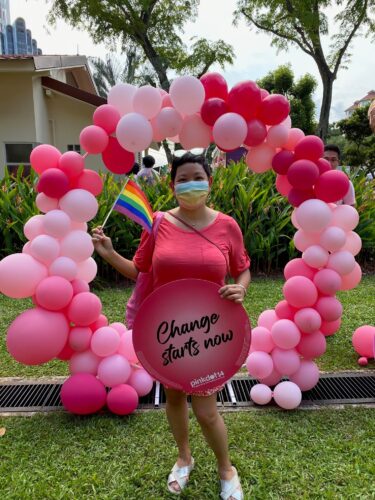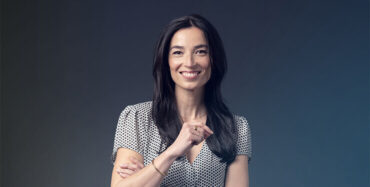
Kathy Teoh is not a fan of performative diversity. “I’m not here to sit pretty. I’m here to make a change and it’s going to be uncomfortable,” she declares. “I always tell my bosses: If I don’t succeed at making change, you can fire me.”
Change calls for courage. Teoh said her “bravest” achievement was starting an LGBTQ+ employee resource group (ERG) in semiconductor manufacturer Micron Technology in Singapore, at a time when same-sex sexual activity was still prohibited.
“Before I joined Micron Technology Singapore as a DE&I business partner in 2020, the company did not have a ‘Pride Chapter’ for LGBTQ+ employees. Mind you, Singapore’s Section 377A was not yet repealed, and being gay was still considered illegal in Singapore’s context. It was a difficult process trying to figure out which colleagues were allies and whether they were willing to work with me on growing the ERG,” she said. “Eventually, it worked out and we even managed to organize awareness educational training for staff so that they may be more empathetic towards the LGBTQ+ community.”
Teoh began her career in SAP software consultancy where she worked for multinationals including Atos and Tetra Pak. In 2008, she pivoted to project management and joined life sciences company DSM in 2008 as senior project manager. She steadily moved up the ranks, and less than a decade later was appointed executive director heading the Center of Expertise, Project Services.
“Early in my career, I received plenty of sponsorship from male allies, leaders in the company who gave me opportunities for greater visibility as a woman of color, for which I am immensely grateful,” she said.
Transitioning to leadership prompted her to question the systemic inequality prevalent in many business organizations. “It made me wonder if it is enough to rely on individuals or allies to help you in your career advancement. And that’s when I felt that we have to change the system and the way we attract, develop and retain talent. We’ve also got to remove some of these biases, provide more equal opportunities, and create systemic change.”
Going ‘woke’
In 2017, she volunteered to take on an additional role at DSM as Global Ambassador for Diversity and Inclusion. “When I joined DSM at its Switzerland office, there were only two Asian women at the headquarters despite its 1,000 headcount. By the time I left, not only did we have a woman co-CEO, but we had also built a much more diverse community, one that was thriving,” she said. “This was the legacy that I left, and it made me realize the importance of having diverse voices – which was not just about benefiting the business.”

In 2019, the COVID-19 crisis hit, and Teoh took a career break to “retrain” herself in advocacy. That year, she took up an MA in Gender Studies at University College Dublin, Ireland.
“I found Ireland progressive in the way they’d successfully campaigned for major changes such as same-sex marriage and the repeal of abortion bans despite being predominantly Catholic,” she said. “My time in Dublin also got me thinking about how I could reshape the organization through activism.”
After completing her master’s degree, Teoh built up the courage to make a career switch to the DE&I space. She went on to assume leadership roles in companies including maritime solutions provider Lloyd’s Register, where she designed and implemented organizational frameworks to help promote the fair treatment of employees, especially those who are historically underrepresented and marginalized.
Upon reflection, Teoh, who is currently Global Strategic Diversity, Equity, Inclusion & Belonging Director at architecture, engineering, and construction (AEC) services firm Arcadis, believes that psychologically safe spaces are the cornerstone of an inclusive work environment – a key takeaway from IMD’s’ Strategies for Leadership (SL) women-focused program, which she took up in 2018.
Another imperative for success in DE&I efforts, Teoh added, is the cultivation of self-awareness, a lesson she took away from SL’s experiential exercise on self-reflection and mindfulness, which involved working with horses.
“Horses are sensitive creatures that can instinctively sniff out your intentions, and whether you are authentic or can be trusted,” she said. “As a change agent, you will be scrutinized for authenticity, so the cultivation of self-awareness is crucial to the success of the inclusive practices you’re putting in place.”
Inspiring inclusion
Driven by her passion for equity and social justice, Teoh is also working closely with Ginka Toegel, the director of the SL program, to support fellow women leaders through the IMD alumni network.
“We started a ‘WOW’ subcommittee of ‘Wise and Outstanding Women’ to come together regularly and share their experiences. These are women who’ve made it to the top of their career and are now thinking about what they want to do after reaching the pinnacle,” she said. “Recently, we’ve also kicked off a series of webinars where SL alumni speak on various topics on, for example, how to land a seat on a corporate board.”
Teoh acknowledged that there is still a long journey towards gender equality despite some progress. “What’s interesting is that since COVID-19, more women have dropped out of the workforce. And if you look at the latest Global Gender Gap report, women are still far from achieving equality. Very few women make it to leadership like the CEO role, let alone women of color,” she said.
Nevertheless, these challenges have strengthened her resolve to drive equity. Moving forward, Teoh reaffirmed that there is a need for everyone to practice allyship in the workplace. “It is even more essential for anyone with power and privilege to advocate for others who are not in the room. And allies don’t just pay lip service – they must take an active stance.”


